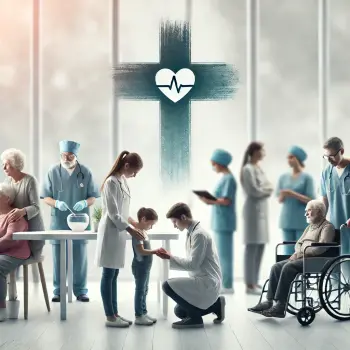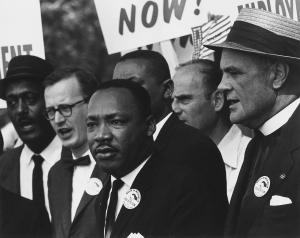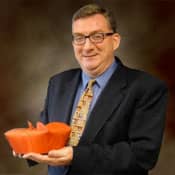Since 1896, St. Joseph's Seminary has been preparing priests and laity for leadership roles in the Catholic Church. Located in Yonkers, a short ride from New York City, it's a place that exudes history. Its walkway is lined with trees planted by visiting ecclesiastical dignitaries, including some future popes. As you enter the seminary building, the first thing you see is the beautiful chapel, where generations of young men have attended (and celebrated) Mass. The walls are flanked with statues of saints, bishops and popes, as well as photos of every ordination class.
But a seminary isn't a museum. It's a living thing, a place where vocations are nourished and future leaders are formed, intellectually, pastorally and spiritually. It's an exciting place to be; there is within it a sense of urgency you don't get elsewhere. Since 2003, I've taught Catholic Church history to young men studying for the Roman Catholic priesthood, as well as to laypeople pursuing advanced theology degrees. Having taught at every level from grammar to graduate school, I can honestly say that I have never enjoyed teaching anywhere as much as I do at St. Joseph's Seminary.
It was St. Vincent De Paul (1576-1660) who said, "There is no greater work than the formation of priests." As a layman, I can think of no greater honor than helping to form future priests. What an honor it is to be present at their ordinations. And there's nothing like going to Mass and seeing one of your former students up on the altar. I pray for their vocations, and their commitment inspires me to want to be a better teacher, neighbor, husband and father. As Dorothy Day once told a priest relative of mine, "We need priests."
And we need lay leaders, too. The men and women I teach in the Institute of Religious Studies are some of the most motivated students I've have ever encountered. Some are retirees, but most are religious education directors and catechists, Catholic school teachers and administrators, pastoral associates and music directors. This isn't just another class to them. It has direct relevance for their pastoral work, in the classroom, the parish and elsewhere.
These days, it goes without saying, some of the biggest challenges we face as a Church are religious indifference and ignorance, especially among younger Catholics. The students I teach, clerical and lay, aren't naïve. They know how it is out there, and they are anxious to engage the prevailing culture and make a difference—to bring the fruits of what they've learned and prayed about into the world.
The work of the seminary, then, is more relevant and important than ever. Today more laypeople are pursuing graduate degrees in Theology than ever before. Why? They have a thirst to grow in the greater knowledge and love of their faith, and to share it with others.
Pray for the students, clerical and lay. And pray for those who teach them. It's a sacred ministry, of which I for one feel deeply honored to be a part. And it only promises to become more deeply needed as time goes on.
10/27/2011 4:00:00 AM





